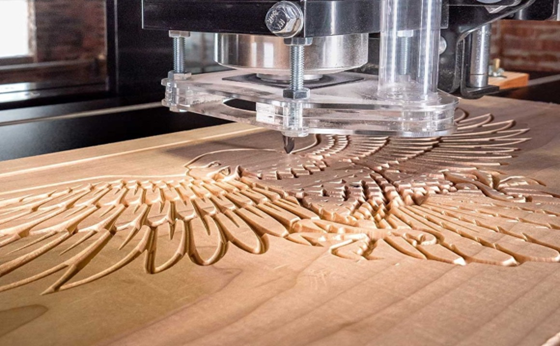Choosing the Right Conveyor Rollers for Efficient Material Handling

Selecting the appropriate conveyor rollers is crucial for optimizing efficiency and longevity in heavy-duty conveyor systems. The right roller types, including Conveyor Impact Rollers and Nylon conveyor rollers, safeguard against shock, reduce wear, and ensure smooth material flow. Consulting the Rulmeca rollers catalog pdf offers comprehensive guidance in choosing rollers that align with specific operational requirements. Understanding the key roller types and parts is essential to achieving a well-integrated and reliable system that enhances productivity and minimizes downtime.
Introduction to Selecting the Right Conveyor Rollers for Heavy-Duty Systems
Overview of the Importance of Selecting the Right Conveyor Roller Parts and Types for Heavy-Duty Systems
Choosing the correct conveyor roller components is crucial for maintaining the efficiency, durability, and reliability of heavy-duty conveyor systems. These systems are integral to industries such as mining, manufacturing, and bulk material handling, where they endure high loads and continuous operations. The right roller types not only ensure smooth operations but also minimize the downtime caused by maintenance and replacements. Moreover, the appropriate conveyor rollers can significantly reduce the wear on other conveyor components, enhancing the overall lifespan of the system.
The selection of the right roller includes considering factors such as load capacity, speed requirements, environmental conditions (like exposure to chemicals or extreme temperatures), and the nature of the materials being transported. Each factor plays a pivotal role in determining which roller type will best suit the operational demands. For example, Conveyor Impact Rollers are designed to absorb shock at load points, protecting the belt and system from damage due to the heavy impact of dropping large volumes of materials. On the other hand, Nylon conveyor rollers offer advantages in environments where corrosion resistance and lower noise levels are priorities.

Understanding Key Conveyor Roller Types
Conveyor Impact Rollers
Conveyor Impact Rollers are specialized rollers that serve as critical components in heavy-duty conveyor systems, particularly at loading and receiving points. Their primary function is to absorb the intense shocks and impacts that occur when heavy or abrasive materials are loaded onto the conveyor belt. They are engineered with resilient materials, often featuring rubber rings around the roller body to cushion the impact. This design minimizes potential damage to the belt, prevents excessive wear and tear, and reduces maintenance costs. By distributing the impact force evenly, these rollers significantly prolong the lifespan of the conveyor belt and other system components, ensuring smooth operation even under harsh working conditions. They are indispensable in industries like mining, construction, and aggregate processing, where materials can be highly abrasive and delivered in substantial loads.
Nylon Conveyor Rollers
Nylon conveyor rollers stand out due to their unique properties, which make them well-suited for lightweight and high-speed applications. These rollers are crafted from durable nylon, a material that offers excellent corrosion resistance, low noise operation, and minimal friction. As a result, they are ideal for conveying goods in environments where quiet operation is necessary or where materials may interact with chemicals that could corrode other roller types. Their lightweight nature ensures high-speed transportation with less power consumption, making them perfect for industries like food processing, pharmaceuticals, and packaging, where efficiency and gentle handling of products are essential. Moreover, their non-conductive and anti-static properties further expand their range of applications, ensuring safe and reliable material transport.

Heavy-Duty Conveyor Rollers
Heavy-duty conveyor rollers are designed for systems that manage extremely high load capacities and operate under intense working conditions. Their robust construction features high-quality materials like steel, which allows them to handle significant loads over long distances. These rollers are often equipped with precision bearings that ensure smooth movement and minimize energy consumption. They are capable of withstanding harsh environmental conditions, such as high humidity, extreme temperatures, and exposure to corrosive substances, making them ideal for industries like mining, logistics, and bulk material handling. Their reinforced design includes thicker shafts and walls, ensuring exceptional durability and longevity even in continuous operation scenarios. These rollers play a pivotal role in maintaining high productivity levels and reducing maintenance-related downtime in demanding industrial applications.
Conveyor Roller Parts & Accessories
Introduction to Conveyor Roller Components
The efficiency and longevity of conveyor systems rely heavily on the quality and suitability of their components. Understanding the various parts such as bearings, brackets, and shafts that make up a conveyor roller is crucial for ensuring a smooth operation. Each component plays a significant role in the overall functionality and durability of the conveyor system.
Bearings: Essential for Smooth Operation
Bearings are pivotal in the operation of conveyor rollers as they reduce friction between the stationary and moving parts of the roller assembly. Choosing the right type of bearing can dramatically affect the efficiency and noise level of the conveyor system. For heavy-duty and high-impact applications, specially designed bearings are used in Conveyor Impact Rollers to withstand the forces exerted during loading and operation. These bearings must be robust, capable of handling high loads, and resistant to wear and tear to ensure that the conveyor system operates smoothly over extended periods.
Brackets: Supporting the Structural Integrity
Brackets are critical for securing conveyor rollers in place, providing the necessary support to maintain alignment and stability of the roller system. They are typically made from durable materials such as steel or heavy-duty polymers to endure the operational stresses of a conveyor system. The design and configuration of the brackets depend on the specific requirements of the conveyor setup, including the type of rollers used—such as Nylon conveyor rollers—and the environmental conditions. Properly designed brackets ensure that rollers are held firmly, reducing the risk of misalignment, which can lead to increased wear or system failure.
Shafts: Connecting and Powering Rollers
Shafts are a crucial component that connects the conveyor rollers to the conveyor frame and motor, transmitting the mechanical power needed to drive the rollers. The material and build of the shaft must be chosen based on the load and speed requirements of the conveyor system. High-strength steel is commonly used for shafts in heavy-duty applications to ensure they can transmit power effectively without bending or breaking. For systems utilizing Nylon conveyor rollers, the shafts might be designed with a lighter build, reflecting the reduced load and stress on the system.
Flexible Roller Conveyor Systems
Overview of Flexible Roller Conveyor Systems
Flexible roller conveyor systems are designed to offer versatility and adaptability in various industrial environments. These systems are essential for production facilities that require modifiable layouts to accommodate different products or operational changes. Unlike fixed conveyor systems, flexible roller conveyors can be easily adjusted, extended, or reconfigured to meet changing production needs or spatial constraints.
Adaptability for Varying Production Layouts
One of the key features of flexible roller conveyor systems is their ability to adapt to various production layouts. This adaptability is crucial in industries where space is at a premium or the production line processes multiple types of products. Flexible conveyors can be curved, bent, and directed around corners, allowing them to navigate around obstacles and utilize available space efficiently. This makes them particularly useful in assembly areas, packaging stations, and warehouses.
Flexible roller conveyors are equipped with segments that can expand, contract, and flex based on the required pathway. This feature is complemented by their portability, as many models are designed with casters or are lightweight enough to be moved manually. This portability allows the conveyor system to be used in different parts of a facility as needed, supporting various stages of production without the need for multiple fixed systems.
Utilization of Different Conveyor Roller Types
Incorporating various types of rollers, such as Nylon conveyor rollers and Conveyor Impact Rollers, enhances the flexibility and efficiency of these systems. Nylon conveyor rollers are particularly beneficial in flexible systems due to their lightweight and durable nature. They reduce the overall weight of the system, making it easier to move and reconfigure. Additionally, their low friction and noise-reducing properties make them ideal for environments that require quiet operation.
Conveyor Impact Rollers are used in sections of the conveyor where heavy or sharp items might be loaded, providing extra protection against impacts that could damage the conveyor belt or the rollers themselves. By absorbing shocks and distributing loads evenly, these impact rollers ensure that even in flexible setups, the integrity of the conveyor system is maintained.
Optimizing Material Handling with Impact and Nylon Conveyor Rollers
Summary of Importance
Selecting the right conveyor roller parts tailored to specific needs is essential for ensuring efficient and cost-effective material handling in any production or industrial environment. Understanding the unique roles of different types of rollers allows businesses to implement systems that are resilient, long-lasting, and aligned with their operational demands.
Conveyor Impact Roller
The Conveyor Impact Roller plays a crucial role in safeguarding the conveyor belt system at loading points. By absorbing the shock and pressure of materials being dropped onto the belt, these rollers reduce potential damage to other components and extend the lifespan of the entire system. Their robust construction ensures that conveyor belts maintain smooth operations even in the most demanding environments, minimizing downtime and enhancing productivity.
Nylon Conveyor Rollers
On the other hand, Nylon conveyor rollers excel in environments requiring lightweight, high-speed, and noise-reducing components. Their durability and low-friction properties make them ideal for delicate or precision products that require gentle handling while maintaining high throughput. Their use minimizes wear and tear on belts, contributing to the system’s longevity and ensuring a consistent flow of materials.




